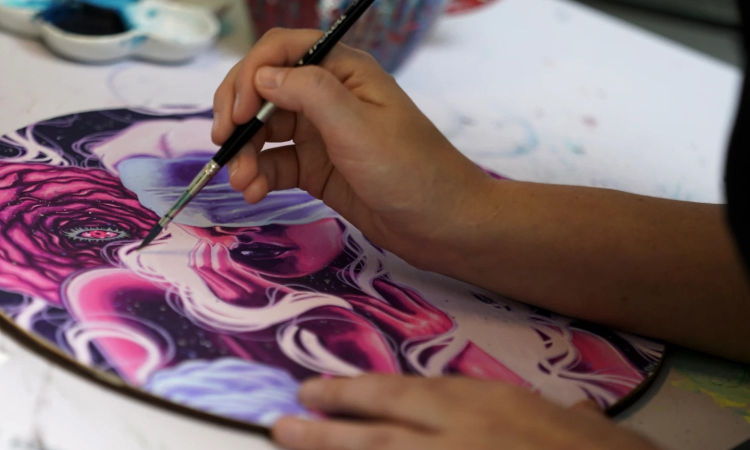Brain resilience: Creativity might slow down brain's ageing: Study
Your next creative act might just help your brain stay younger.

Representative Image
Creative experience may enhance brain health, slowing the pace of brain ageing.
That’s the conclusion of an international study across 13 countries, which found that engaging in creative activities — whether tango dancing, painting, music, or even gaming — was linked to a “younger” brain as measured by an artificial intelligence (AI) brain clock. The more participants practised their art, the younger their brains appeared.
Neuroscientists Carlos Coronel and Agustín Ibáñez, who led the research, describe brain health as the balance of cognitive, emotional, and social functioning that allows people to adapt, learn, and thrive. Ageing naturally alters brain structure and connectivity, but these changes vary widely between individuals, depending on both vulnerability and resilience.
“Brain clocks” are AI models that estimate how old a brain looks, based on scans or neural activity. They compare a person’s data to typical patterns across the lifespan. A brain that appears younger than its chronological age is functioning more efficiently.
The researchers wanted to know whether creativity — beyond its emotional satisfaction — produces measurable biological benefits. Art is often viewed as mysterious or intangible, but the team set out to test whether creative activity could actually help delay brain ageing, much like physical exercise benefits the body.
They gathered data from nearly 1,400 participants in multiple countries, including expert dancers, musicians, artists, and gamers, as well as matched non-experts. Brain activity was recorded using magnetoencephalography and electroencephalography, which track neural signals in real time. Computer models then generated individual brain clocks for each participant.
If a person’s predicted brain age was lower than their real age, it meant their brain was ageing more slowly. To understand the biology behind this, the team used “biophysical models” — virtual brains built on biological and physical rules. Unlike AI brain clocks, which only predict, these generative models simulate how the brain itself operates.
The findings were strikingly consistent. Creativity was linked to a younger brain in every discipline. Tango dancers’ brains appeared more than seven years younger than their actual age. Musicians and visual artists showed brains five to six years younger, and gamers around four years.
In a smaller experiment, volunteers with no gaming experience trained for just 30 hours in the strategy game StarCraft II. Even after that short creative engagement, participants’ brain clocks ticked backward by two to three years. The more they practised, the greater the benefit.
It didn’t matter whether the creative act was movement, sound, colour, or strategy. All strengthened communication between brain regions crucial for focus and learning — areas that typically decline first with age. Creativity appeared to keep these networks flexible, resilient, and efficient, as if upgrading the brain’s internal highways.
The study suggests that the arts and sciences are allies rather than opposites. Creativity, it turns out, shapes not only culture but biology. Artistic engagement may be a biological pathway to resilience and healthy ageing, not merely a source of pleasure or expression. By demonstrating that creative pursuits can slow brain ageing, this research reimagines creativity as essential to wellbeing across the lifespan.
So if you’re wondering whether dancing, painting, or playing music is good for you, the answer is 'yes'. Scientifically, measurably, and beautifully so. Your next creative act might just help your brain stay younger.
The Conversation



